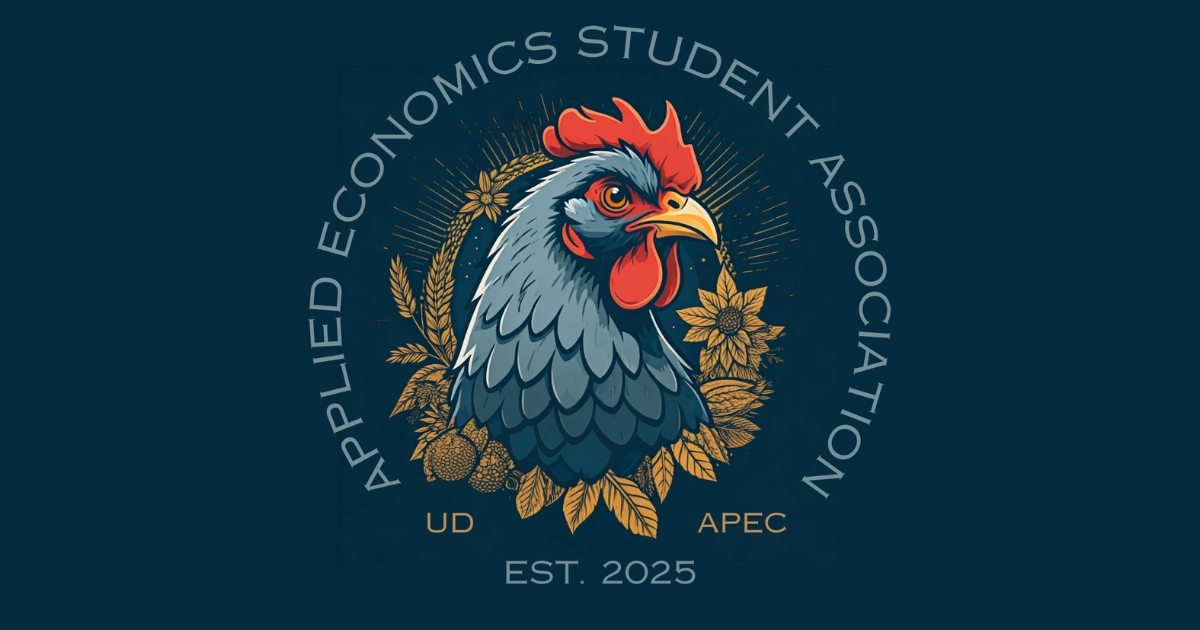
Food and Agribusiness Marketing and Management major
Why major in food and agribusiness marketing and management?
Agriculture and food industries contribute more than 22 million part-time and full-time jobs and approximately $1.53 trillion to the U.S. economy. Food and agribusiness marketing and management majors bring an analytical perspective and business-savvy mindset to global problems related to food and agriculture. They analyze markets and look for business solutions to challenges such as food insecurity, nutrition and climate change.
22M jobs
in the agriculture and food industries!
$1.53 trillion
Added in value to the U.S. economy.
What makes our program unique?
Food and agribusiness marketing and management goes beyond just a business and marketing perspective. The hands-on major encourages students to put economic research, consumer analytics, business plans and product development into practice through various applied assignments and courses. Students develop their analytics, business and entrepreneurial skills, while at the same time, learn about food, agriculture, and environmental challenges that they can apply those skills to.
In one of our courses, students have the opportunity to develop a new product idea related to food and agriculture and come up with a marketing plan for the product. They’ll team up with their classmates on the project and present their plan during a competition through the National Agri-Marketing Association (NAMA). The blend of coursework, extracurricular activity, and competition gives our students a unique hands-on experience to immerse themselves in the real world.

Our classes all have opportunities for experiential learning, hands-on opportunities, and engagement with industry. We're well connected with employers and alumni who are interested in helping our students.
Even if they’re not familiar with the food and agriculture industry, it's a great space to learn about it and to understand how the value chain of the food system works.
—Kelly Davidson. Assistant Professor of Applied Economics
Courses and planning
Course highlights
This course engages students in learning and critical thinking about a variety of pressing issues, such as natural resource management, environmental protection, and poverty alleviation in a regional, national, and international context. Instructors integrate natural science, economics, ethics, and policy to improve the wellbeing of people and the environment. Instructors encourage students to think critically about these issues by applying basic policy and economic analysis, considering the ethical dimensions of policy, and assessing indicators of environmental quality and human welfare. Students tackle projects related to sustainability, resilience, and climate change.
This course provides a foundation of retailing management and strategy, which inherently involves exploring consumer behavior. Instructors cover the many facets of the food value chain to broadly understand challenges and opportunities of retailing food products. Additionally, students discuss the factors and behavioral responses that affect food choice. Students learn and apply basic concepts and key terms and complexities and strategies of retail management. Students learn to create a retail strategy and evaluate the dynamics of maintaining a value proposition to remain competitive in the marketplace.
Instructors introduce the economic explanations for new technologies and the way economists view innovation and adoption of new products and techniques. The course moves on to a description of biotechnology and issues from consumer acceptance to government regulations to trade. Students explore risk assessment, intellectual property rights and differences in developing countries. Along the way, other technologies with the potential for significant impacts on agribusiness or beyond are discussed.
This course equips students with social sciences research skills focused on consumer behavior and resource management issues. They’ll learn techniques such as surveys, lab, and field experiments, as well as how to design and conduct research experiments and report results. The course emphasizes data issues, data analysis, and modeling techniques such as graphical methods, inference and multiple regression.
Students develop marketing plans, pitching the plan in local and national competitions. The primary objective is to prepare for the student competition at the National Agri-Marketing Association Conference. Students enrolled develop product ideas, implement marketing and advertising techniques, and evaluate financial requirements for an innovative food and agribusiness product or service. Students will work as a team to design a marketing campaign and compose the executive summary of a written marketing plan.
Instructors cover the necessary steps on how to start a food and agribusiness venture. Students write and present a business plan to industry professionals to mimic a real-world experience. The plan incorporates the subject matter learned in previous FABM coursework, so students can apply the knowledge gained in those courses in a practical academic business endeavor.
A 4-Year Plan
*This sample shows just one possible pathway to earning a bachelor of science degree in Food and Agribusinesss Marketing and Management in four years. This plan does not replace the advice of your advisor.
Career outcomes
Food and agribusiness marketing and management majors have plenty of opportunities to engage with industry through internships with food and agribusiness employers in our area. Perdue Farms, FMC Corporation, Willard Agri Service, TEKsystems, and the Farm Credit System are just a few examples of companies our students have formed connections with, interned for, and pursued careers at.
There is a high demand for college graduates with agricultural-related degrees. According to the According to the National Institute for Agriculture's Employment Opportunities for College Graduates report, more than 59,000 agricultural-related job opportunities are available annually.
Job opportunities are available in:
Produce and Food Brokerage
Investment Brokerage
Food Marketing
Food Sales
Agricultural Chemical Sales
Pharmaceutical and Veterinary Medicine Sales
Market Analyst
Additionally, many of our students pursue graduate degrees, such as:
Economics
Resource Economics
Marketing
Law
Agribusiness Finance
International Marketing
Business Administration
More than 59,000 jobs
related to agriculture are available annually.
Related student organizations
Apply & Learn more

APPLY NOW
Associate Director, CANR Undergraduate Recruitment





